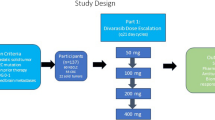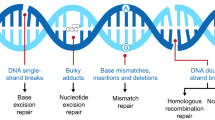Abstract
Despite the success of modern therapy for Hodgkin lymphoma (HL), about 15 % of patients will fail both first-line and second-line therapy and treatment options for these patients are limited. New agents are needed to improve the outcome for relapsed or refractory HL and to improve the toxicity of current front-line regimens. Brentuximab vedotin (BV) was recently approved for HL and is likely to have a tremendous impact on the current treatment paradigm for HL. Additional agents that have demonstrated activity in HL include histone deacetylase inhibitors, such as panobinostat, entinostat, and mocetinostat, PI3-kinase/Akt/Mtor pathway inhibitors, such as everolimus, as well as lenalidomide and bendamustine. Studies evaluating these agents alone or in combination with either chemotherapy or other targeted agents are ongoing. Current challenges in HL research include identifying the most appropriate drug combinations of new and old drugs and identifying predictors of response to the new targeted agents.
Similar content being viewed by others
References
Papers of particular interest, published recently, have been highlighted as: • Of importance •• Of major importance
Viviani S, Zinzani PL, Rambaldi A, Brusamolino E, Levis A, Bonfante V, et al. ABVD versus BEACOPP for Hodgkin’s lymphoma when high-dose salvage is planned. N Engl J Med. 2011;365:203–12.
•• Younes A, Gopal AK, Smith SE, et al. Results of a pivotal phase II study of brentuximab vedotin for patients with relapsed or refractory Hodgkin’s lymphoma. J Clin Oncol. 2012. doi:10.1200/JCO.2011.38.0410. This is the phase II study of brentuximab vedotin in relapsed and refractory Hodgkin lymphoma that led to its approval.
Chen RW, Forman SJ, Palmer J, et al. Brentuximab vedotin (SGN-35) enables successful reduced intensity allogeneic hematopoietic cell transplantation in relapsed/refractory Hodgkin lymphoma. ASH Annual Meeting Abstracts. 2011;118:664.
Younes A, Connors JM, Park SI, Hunder NNH, Ansell SM. Frontline therapy with brentuximab vedotin combined with ABVD or AVD in patients with newly diagnosed advanced stage Hodgkin lymphoma. ASH Annual Meeting Abstracts. 2011;118:955.
Culine S, Kramar A, Théodore C, Geoffrois L, Chevreau C, Biron P, et al. Randomized trial comparing bleomycin/Etoposide/Cisplatin with alternating cisplatin/Cyclophosphamide/Doxorubicin and Vinblastine/Bleomycin regimens of chemotherapy for patients with intermediate and poor-risk metastatic nonseminomatous germ cell tumors: Genito-Urinary Group of the French Federation of Cancer Centers Trial T93MP. J Clin Oncol. 2008;26:421–7.
Buglio D, Georgakis GV, Hanabuchi S, Arima K, Khaskhely NM, Liu Y-J, et al. Vorinostat inhibits STAT6-mediated TH2 cytokine and TARC production and induces cell death in Hodgkin lymphoma cell lines. Blood. 2008;112:1424–33.
Kirschbaum MH, Goldman BH, Zain JM, Cook JR, Rimsza LM, Forman SJ, et al. Vorinostat (Suberoylanilide hydroxamic Acid) in relapsed or refractory Hodgkin lymphoma: SWOG 0517. ASH Annual Meeting Abstracts. 2007;110:2574.
Sureda A, Younes A, Ben-Yehuda D, Ong T-C, Kaufman JL, Corre CL, et al. Final analysis: Phase II study of oral panobinostat in relapsed/refractory Hodgkin lymphoma patients following autologous hematopoietic stem cell transplant. ASH Annual Meeting Abstracts. 2010;116:419.
Younes A, Bociek RG, Kuruvilla J, Laneuville P, Fung HC, Drouin M, et al. Mocetinostat (MGCD0103), An Isotype-Selective Histone Deacetylase (HDAC) inhibitor, produces clinical responses in relapsed/refractory Hodgkin Lymphoma (HL): Update from a phase II clinical study. ASH Annual Meeting Abstracts. 2010;116:1763.
Younes A, Hernandez F, Bociek RG, Kasamon YL, Lee P, Gore L, et al. The HDAC inhibitor entinostat (SNDX-275) induces clinical responses in patients with relapsed and refractory Hodgkin’s lymphoma: Results of ENGAGE-501 Multicenter Phase 2 Study. ASH Annual Meeting Abstracts. 2011;118:2715.
Martín-Sánchez E, Sánchez-Beato M, Rodríguez ME, Sánchez-Espiridión B, Gómez-Abad C, Bischoff JR, et al. HDAC inhibitors induce cell cycle arrest, activate the apoptotic extrinsic pathway and synergize with a novel PIM inhibitor in Hodgkin lymphoma-derived cell lines. Br J Haematol. 2011;152:352–6.
Dutton A, Reynolds GM, Dawson CW, Young LS, Murray PG. Constitutive activation of phosphatidyl-inositide 3 kinase contributes to the survival of Hodgkin’s lymphoma cells through a mechanism involving Akt kinase and mTOR. J Pathol. 2005;205:498–506.
Johnston PB, Pinter-Brown L, Rogerio J, Warsi G, Graham A, Ramchandren R. Open-label, single-arm, Phase II study of everolimus in patients with relapsed/refractory classical Hodgkin lymphoma. ASH Annual Meeting Abstracts. 2011;118:2717–.
• Lemoine M, Derenzini E, Buglio D, Medeiros LJ, Davis RE, Zhang J, et al. The pan-deacetylase inhibitor panobinostat induces cell death and synergizes with everolimus in Hodgkin lymphoma cell lines. Blood. 2012;119:4017–25. This manuscript provides preclinical rationale for combining HDAC inhibitors and mTOR inhibitors in Hodgkin lymphoma.
Younes A, Copeland A, Fanale MA, Fayad L, Romaguera JE, Kwak LW, et al. Safety and efficacy of the novel combination of Panobinostat (LBH589) and everolimus (RAD001) in relapsed/refractory Hodgkin and non-Hodgkin lymphoma. ASH Annual Meeting Abstracts. 2011;118:3718.
Kotla V, Goel S, Nischal S, Heuck C, Vivek K, Das B, et al. Mechanism of action of lenalidomide in hematological malignancies. J Hematol Oncol. 2009;2:36.
•• Fehniger TA, Larson S, Trinkaus K, Siegel MJ, Cashen AF, Blum KA, et al. A phase 2 multicenter study of lenalidomide in relapsed or refractory classical Hodgkin lymphoma. Blood. 2011;118:5119–25. Results of the phase II study of lenalidomide in relapsed or refractory Hodgkin lymphoma.
Moskowitz A, Hamlin P, Gerecitano J, Horwitz S, Matasar M, Noy A, et al. Updated results of a phase II trial of bendamustine in relapsed and refractory Hodgkin lymphoma. Ann Oncol. 2011;22.
Disclosure
No potential conflicts of interest relevant to this article were reported.
Author information
Authors and Affiliations
Corresponding author
Rights and permissions
About this article
Cite this article
Moskowitz, A.J. Novel Agents in Hodgkin Lymphoma. Curr Oncol Rep 14, 419–423 (2012). https://doi.org/10.1007/s11912-012-0251-y
Published:
Issue Date:
DOI: https://doi.org/10.1007/s11912-012-0251-y




